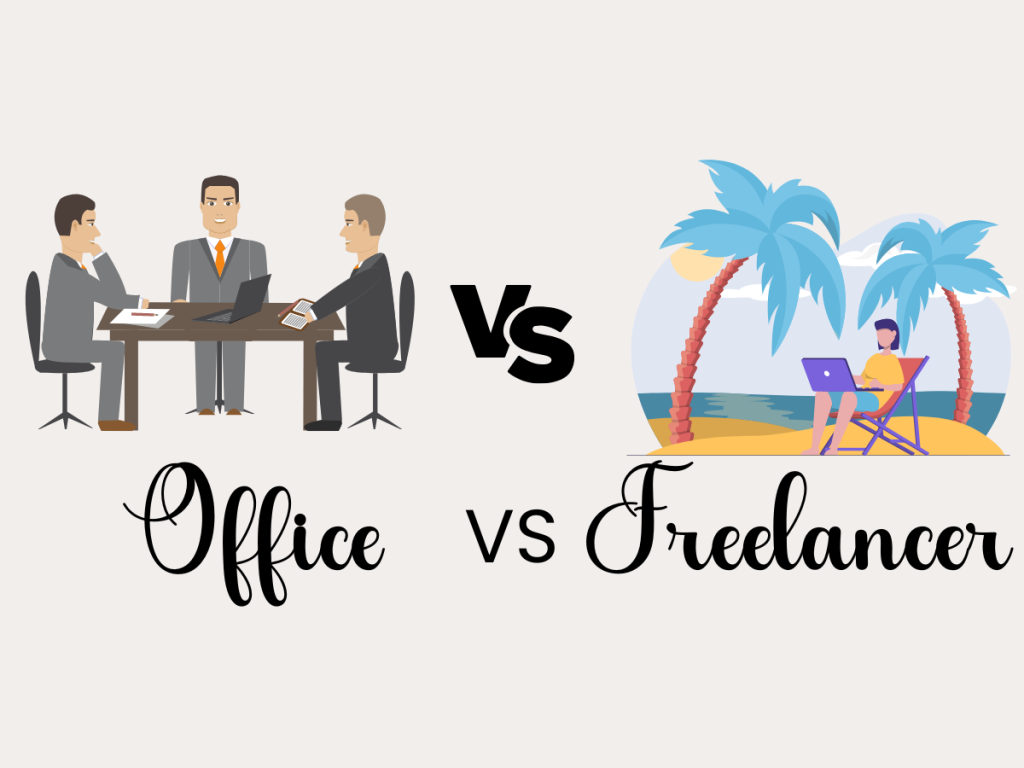In today’s business world, which is always changing, the idea of work has changed. Companies no longer have to hire people for standard 9-to-5 office jobs in order to meet their project goals and needs. Instead, more and more businesses are choosing to hire freelancers. There are a number of factors behind this change in hiring practices that are advantageous to both businesses and independent contractors in different ways.
This article will look at the 11 main reasons why businesses are hiring more freelancers than ever before.
1. Cost-Efficiency:
One of the most compelling advantages of hiring freelancers is cost efficiency. In contrast to full-time workers, freelancers usually only get paid for the work they do. Businesses can avoid paying for perks like health insurance, paid time off, and retirement plans for their workers. Also, freelancers often work from home, so they don’t need an office or office tools. This low-cost arrangement lets businesses put their resources to better use and lower their general operational costs.
2. Access to Specialised Skills:
Freelancers often have specialised skills that are hard to find in the current workforce. When businesses need special skills for short-term projects, they can hire freelancers right away to get access to professionals with the right set of skills. Freelancers have specialist skills that can considerably improve project outcomes, whether it’s visual design, software development, content writing, or digital marketing.
3. Flexibility and Scalability:
Due to the nature of freelancing, firms can adjust their staff size in response to project demands. In order to handle higher workloads at busy times, businesses can swiftly bring on freelancers. Once the project is finished, they can be discharged without having to make any long-term commitments. Businesses can efficiently respond to shifting market conditions and maintain their agility in a cutthroat climate because of this flexibility.
4. Speedy Project Completion:
Most of the time, freelancers only work on the projects they are given, which makes them faster than in-house teams. Since freelancers don’t have to deal with day-to-day office tasks, they can focus their full attention on meeting project deadlines. This faster pace of work can be helpful for projects or product launches that need to be done quickly.
5. Global Talent Pool:
The internet has changed how companies work by giving them access to a huge pool of talent from all over the world. Organisations are no longer limited to only hiring people from their own area. By working with freelancers, companies can work with professionals from all over the world and get new ideas and different points of view that may not be easy to find locally.

6. Reduced Training and Onboarding Time:
Bringing new staff up to speed necessitates a major time and resource investment. In contrast, freelancers typically require less training and onboarding. Their experience and competence in their respective industries allow them to smoothly integrate into projects, lowering the learning curve and allowing for faster project commencement.
7. Objective Outsider Perspective:
Freelancers frequently provide an unbiased outsider’s perspective on projects. Their independence allows them to provide fresh perspectives and constructive critiques that an internal team that has been involved in the project for an extended period of time might not provide. This outside perspective can lead to better project outcomes and novel ideas.
8. Reduced Administrative Burden:
Managing a large workforce’s payroll, benefits, and other administrative chores can be time-consuming and complex. Hiring freelancers makes this process easier because they are responsible for their own taxes, insurance, and other administrative responsibilities. This reduction in administrative burden allows organisations to focus on core activities.
9. Risk Mitigation:
Hiring full-time personnel for short-term initiatives might be risky in an ever-changing corporate environment. If the project is completed sooner than projected, businesses may be left with excess personnel. Freelancers reduce this risk because they can be hired for the exact duration of the project, aligning workforce requirements with project timeframes.
10. Flexible Workforce
One of the key reasons businesses choose freelancers is the freedom they provide. In contrast to full-time employees, freelancers can be employed on a project-by-project basis, allowing businesses to increase their workforce as needed. This adaptability is especially useful for firms that encounter seasonal swings in their workload.
11. Fresh Perspectives
Hiring freelancers can provide a company with new perspectives and ideas. Freelancers, as independent contractors, bring a unique set of experiences and insights to the table. This diversity can contribute to organisational creativity and creative problem-solving. Freelancers can provide valuable insight and question established standards, assisting businesses in staying ahead of the market.
Quick Summary:
For modern firms seeking efficiency, creativity, and cost-effectiveness, embracing the freelance revolution has become a smart choice. This technique enables businesses to access a diversified talent pool without committing to full-time employment. Freelance workers provide specialised knowledge, flexibility, and the capacity to drive project success. While there are obstacles, good communication and expectations can help alleviate them. Companies that incorporate freelancers into their strategy position themselves for success in a dynamic business climate as the future of work continues to shift.
Frequently Asked Questions-
How can companies effectively manage freelancers?
Clear communication, setting expectations, delivering precise project briefs, regular check-ins, and timely feedback are all essential components of effective freelancer management. Collaboration tools and project management platforms can help with communication and progress tracking.
What are the potential challenges of working with freelancers?
While freelancers have many advantages, there can be issues with communication, time zone variations, availability, and assuring constant quality. Clear communication and setting expectations from the beginning can help mitigate these issues.
What legal considerations should companies be aware of when hiring freelancers?
Companies must appropriately classify freelancers as independent contractors and follow any labour regulations. Using well-written contracts that clearly define the terms of the relationship will help you avoid legal issues.
Can freelancers become long-term partners for a company?
Yes, for sure. Freelancers can become important long-term partners for a business. When businesses work well with freelancers, they often build strong working relationships with them and hire them for multiple jobs over a long period of time.
How do freelancers price their services?
Freelancers usually set the price of their services based on their expertise, the difficulty of the job, the scope of the work, and the going market rate. Some freelancers charge by the hour, and others have fixed rates for each job.
Conclusion
In conclusion, there are many advantages for companies that decide to hire freelancers. Freelancers can help a business in a lot of ways, like by giving it access to specialised skills and a flexible workforce. Freelancers are also a good choice for companies that want to do well in today’s fast-paced business world because they can save money, work more efficiently, and get new ideas.









